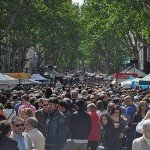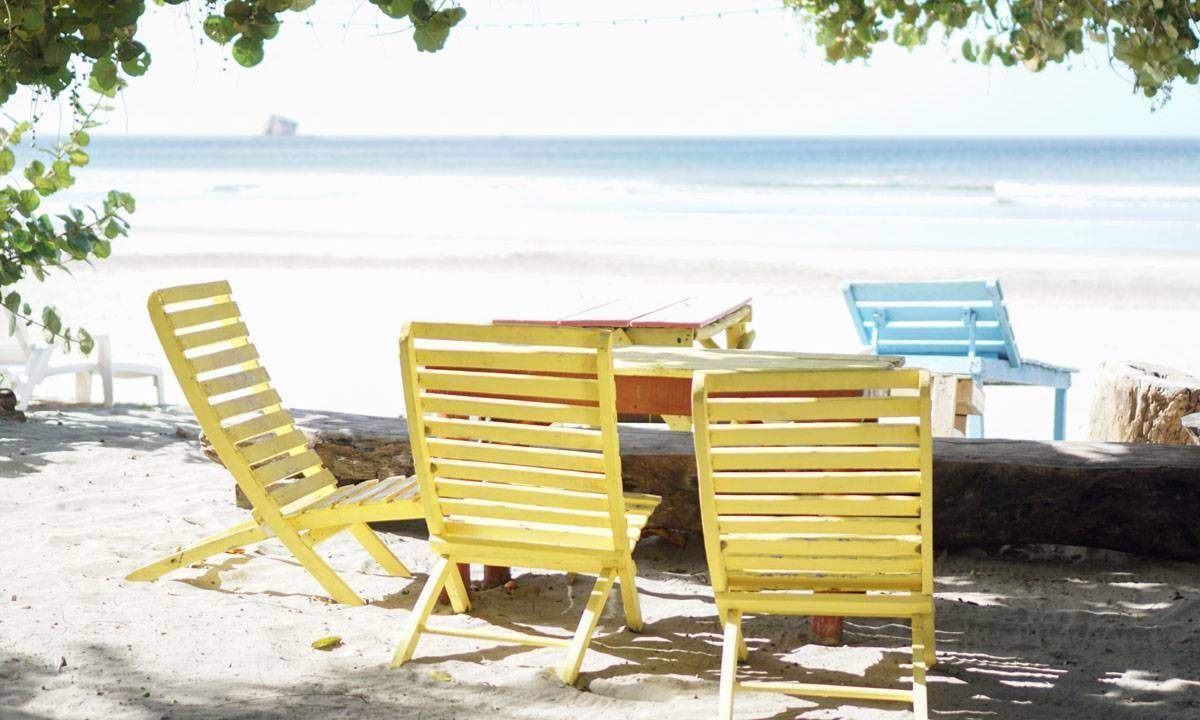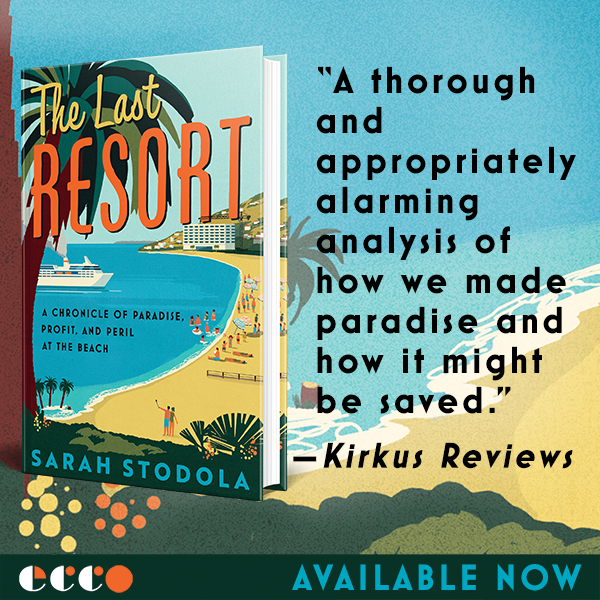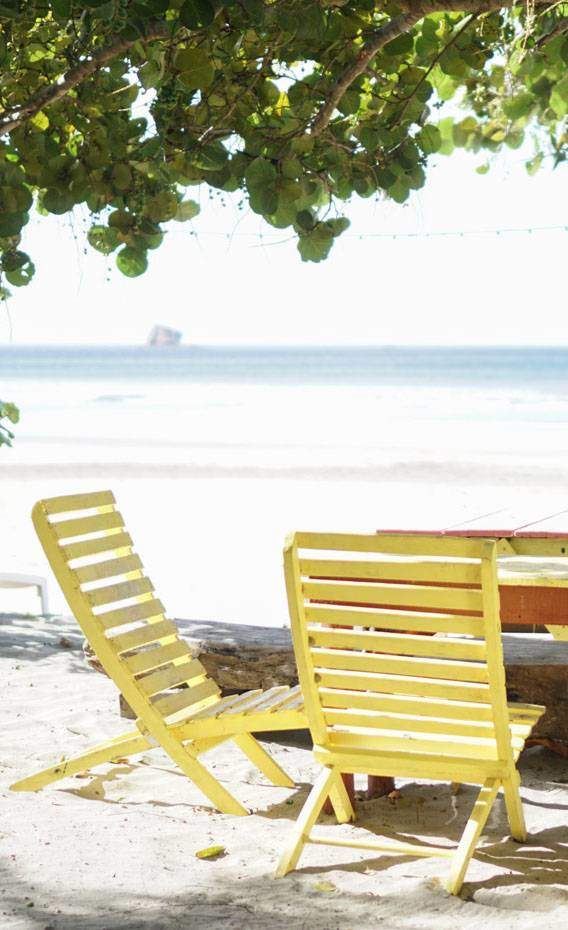I’m lying belly-down on the bed in my hotel room, a place on the beach with a beautiful view but no air conditioning on this, a 90-degree day. And I’m PMS-y as all get out. We arrived at Playa Hermosa on Nicaragua’s west coast this morning, and my feminine condition has left me with no motivation even to walk the 50 meters down to the ocean to cool off. I could get in a cold shower, but then I’d be too wet to lie back down on the bed. The mosquito net dances around me in the so-slight breeze. I don’t have the energy to sort out a solution here.
I lie here and I imagine a place in which creature comforts come as a matter of course if you are paying $100 a night, which we currently are. The scenario wouldn’t necessarily unfold like this elsewhere, in another country, on another 90-degree day.
The price tag encourages nitpicking because, in a developing country, that amount tends to get a traveler onto the spectrum of luxury. Even in the States, $100 a night would get you access to a bucket of ice, at least. Beachfront property in Nicaragua is a funny thing, though, in that despite the hundreds of miles of coastline, there’s not a lot of it. The reasons are historical, and political. Property ownership in general can be slippery, thanks to the Sandinistas having expropriated large amounts of land in the 1980s, resulting in endless title disputes today. Foreign investment is held back by an unreliable court system. In addition, no structure can legally be built within 50 meters of the high-tide line.
So there just aren’t a lot of options in terms of falling asleep to the lull of lapping waves. And we pay a premium when a beachfront hotel does exist. For comparison, we’ve just come from the popular nearby town of San Juan del Sur, where one might also expect to pay a premium. We paid the same amount there for a room with air conditioning and hot water, in a hotel with a darling pool, endless supply of cold drinking water, and breakfast included.
I’m on this trip coming off a rough year, and I’m taking my lingering gloom out on an entire country, just because it had the bad luck to welcome me into it. Looking past my own tang, though, the truth is that I like Nicaragua—a lot—even if I don’t completely trust Nicaragua. The country has a mesmerizing variety in its sceneries and cultures, with the east coast taking its cues from the Caribbean and the west coast sticking to a more fundamentally Latino milieu, although one that is increasingly punctuated by the universal signs of surfer culture. Inland, colorful, colonial Granada has the feel of a lost city, rising up out of a dusty nowhere near the banks of enormous Lake Nicaragua. Volcanoes abound, emitting laconic plumes likes it’s no big deal.
There are shocks of beauty in the ordinary. A white cow ambles down the beach during breakfast, then breaks into a jog, surprising both of us. On New Year’s Eve, as we wander the main drag of San Juan del Sur, fireworks explode in all directions, submerging us in the show in a way that doesn’t happen back home. We buy beers from a street vendor and end up on the stairs down to the beach just after midnight. The beers in Nicaragua are served gloriously cold, always. During a walk down the beach, perfect sand dollars emerge every time a wave rolls out.
But like I said, I’m in a head space that has me prone to fixating on the flaws. In Nicaragua, transportation scheduled to leave at a given hour rarely does. The advertised ceiling fan in our room turns out to be a small oscillating fan attached to the wall near the ceiling. Pricing is unpredictable. At the restaurant by the hotel, they regularly run out of tortillas. My bathing suits, even when I hang them out to dry, end up smelling of mildew. The wind dies down in the dead of night, just when I need it most.
These may be characterized as drawbacks, or they may be called charms, depending on your attitude toward your privilege when you encounter them. These flawed charms, charming flaws, perfect imperfections, are what give Nicaragua its particular place in the global travel landscape at the moment. Anyone who has embarked on even preliminary internet research for a trip here will have learned that Nicaragua is Costa Rica 10 years ago, aka before the real crowds descended, aka before the prices really went up. For a certain kind of traveler, into the ranks of which I myself fall, this is the sweet spot: Enough amenities to be comfortable enough, but not so many to overwhelm the soul of the place. When I’m in good spirits going in, a place like this is exactly my jam.
When my outlook is less charitable, I look around the west coast of Nicaragua and conclude that the world would be a more pleasant place without yoga retreats, for one thing. It would be better without gringo 18-year-olds emboldened in bars for the first time and without 30-year-olds taking a year off from their white-collar worlds to find themselves.
At the restaurant on the beach, we chat with a guy who was born in Atlanta but calls himself Nicaraguan. His family owns a hotel on a beach further north. The hotel is safe, he tells us, because “everybody is scared of” a friend of his family. That, apparently, is a pitch. He encourages us to think about investing in Nicaragua. He’s just the sketchy kind of convincing gringo you could lose your life savings to. The mood he catches me in, I find in him a flaw charming, and I listen to his spiel as I eat my guacamole.







